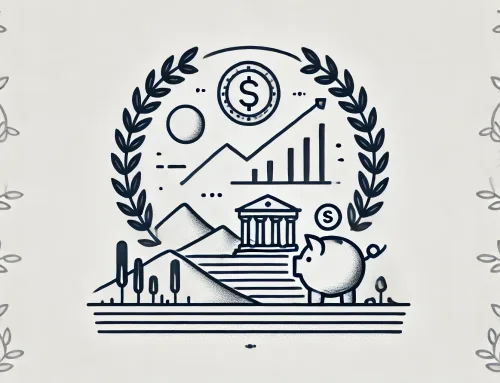Following a Frugal Life
Frugality is often defined as a quality to enjoy a balanced and happy life while being careful on spending money and using other resources economically. The frugality concept is the key to save money and achieve faster your financial goals. But which are the basics of this theoryand how do I apply it in my daily life?
Here are some principles to follow:

Tips
1. Invest in assets and reduce unnecessary spending.
Spending on unnecessary things may provide short-term satisfaction but there is more gratification to invest in quality assets which may increase in value over time. This principle is followed by wealthy people and is often unknown to the average worker. Would you consider instead of spending on average USD 40 per month in McDonald’s food (close to USD 500 per year) to buy two McDonald’s company shares valued the same amount and benefit from share appreciation and cash-in dividends every year? The more frugal, the wiser and richer you get.
Conclusion: do not make your life dependent on unnecessary spending, buy assets instead!
2. The one third rule.
For most people, monthly income is often obtained from your pay slip. A simple rule may consist of limiting your expenses to one third of the net income earned (after retained taxes). Typically, you shall seek to spend one third of your monthly net income to pay the rent/reimburse the mortgage, one third to cover expenses (bills, food, clothing…) and one third to savings. The savings capacity is very important to ensure putting enough money aside to invest in assets that in the long time shall give you returns.
Conclusion: Put in place a savings strategy and make the money work for you.
3. Start to save money as early as you can
When you receive your first salary, it is a good occasion to start saving even if the salary slip amounts are low. Remember that the amount is not relevant but rather the saving habit which shall guide you through your life. The earlier you start saving, the more capacity you will have to invest and obtain returns.
Conclusion: The earlier you save, the earlier the money will work for you.
4. Set clear saving goals
Think on a monthly budget on expenditures and stick to it. Expenses planification shall allow you to define an amount of savings per month and have a clear view on what you earn as income and what you spend. Most people are not aware of their monthly expenditures and do not monitor them. Having a value in mind is a reminder every time you pay or consume.
Conclusion: budget your expenses and define a saving amount per month.
Discover our recent Posts
Which professional career shall I choose? The first right steps to success
Introduction Choosing your studies and your professional career are one of the main decisions of your life. The outcome of your decision will certainly have a social and financial impact. Of course, the decision [...]
The success secrets to excel at work
Introduction Professional development is one of the main pillars to achieve success. In a nutshell, your career is important for an individual’s life, your financial stability but also your personal growth and social status. [...]
Adapt your consuming habits and stay away from debt
Introduction As a general rule, avoid debt or other financing products (such as revolving credit cards or buy-now-pay later financing products). Getting out of the debt trap is possible if you limit unnecessary expenses [...]






Leave A Comment